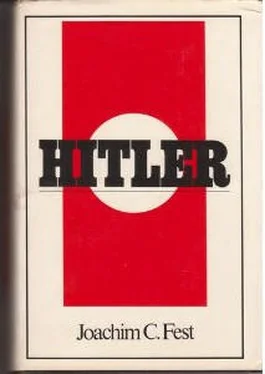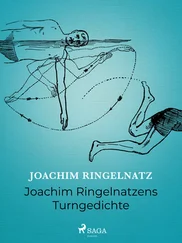Joachim Fest - Hitler
Здесь есть возможность читать онлайн «Joachim Fest - Hitler» весь текст электронной книги совершенно бесплатно (целиком полную версию без сокращений). В некоторых случаях можно слушать аудио, скачать через торрент в формате fb2 и присутствует краткое содержание. Город: New York, Год выпуска: 1974, ISBN: 1974, Издательство: A Harvest Book, Жанр: Биографии и Мемуары, на английском языке. Описание произведения, (предисловие) а так же отзывы посетителей доступны на портале библиотеки ЛибКат.
- Название:Hitler
- Автор:
- Издательство:A Harvest Book
- Жанр:
- Год:1974
- Город:New York
- ISBN:9780151416509
- Рейтинг книги:5 / 5. Голосов: 1
-
Избранное:Добавить в избранное
- Отзывы:
-
Ваша оценка:
- 100
- 1
- 2
- 3
- 4
- 5
Hitler: краткое содержание, описание и аннотация
Предлагаем к чтению аннотацию, описание, краткое содержание или предисловие (зависит от того, что написал сам автор книги «Hitler»). Если вы не нашли необходимую информацию о книге — напишите в комментариях, мы постараемся отыскать её.
Index. Translated by Richard and Clara Winston. A Helen and Kurt Wolff Book
Hitler — читать онлайн бесплатно полную книгу (весь текст) целиком
Ниже представлен текст книги, разбитый по страницам. Система сохранения места последней прочитанной страницы, позволяет с удобством читать онлайн бесплатно книгу «Hitler», без необходимости каждый раз заново искать на чём Вы остановились. Поставьте закладку, и сможете в любой момент перейти на страницу, на которой закончили чтение.
Интервал:
Закладка:
It may be that the concept of greatness has become problematical. In one of the pessimistically toned political essays Thomas Mann wrote in exile, he used the terms “greatness” and “genius” in regard to a then triumphant Hitler, but he spoke of “botched greatness” and of a debased stage of genius. 7In such contradictions a concept takes leave of itself. Perhaps this idea of greatness also springs from the historical consciousness of a past era, which placed almost all its weight on the actors and ideas of the historical process and almost none on the extensive network of forces.
Today this tendency is reversed, and we ascribe little importance to personality compared with the interests, relationships, and material conflicts within the society. This approach has also been applied to Hitler. Thus he has been portrayed as the “hireling” or “sword arm” of capitalism, who organized the class struggle from above and in 1933 subjugated the masses, who had been pressing for political and social self-determination. Later, by unleashing the war, he carried out the expansionist aims of his employers. In this story, which has been presented in a great many variants, Hitler appears as totally interchangeable, “the most vulgar of tin soldiers,” as one of the leftist analysts of Fascism wrote as early as 1929. For the proponents of this theory he was, at any rate, merely one factor among others, not a determining cause.
Fundamentally, the argument is directed at the very possibility of arriving at historical knowledge by way of a biographical study. No single person, it runs, can ever make manifest the historical process in all its complexities and contradictions, upon all its many, forever shifting areas of tension. Strictly speaking, the argument continues, the biographical approach merely continues the old tradition of court and adulatory writing, and after 1945 went right along employing basically the same methodology, with merely a change of sign: Hitler remained the all-moving, irresistible force and “merely changed his quality; the savior became the diabolic seducer.” 8Ultimately, the argument continues, every biographical account willy-nilly serves the needs for justification felt by the millions of onetime followers who can easily see themselves as the victims of so much “greatness” or who at any rate can place all responsibility for what happened upon the pathological whims of a diabolic and imperious leader. In short, biography amounts to a surreptitious maneuver in the course of a broad campaign of exculpation.
This argument is strengthened by the fact that the personality of Hitler scarcely arouses our interest. Over the years it remains oddly pallid and expressionless, acquiring tension and fascination only in contact with the age. In Hitler there is a great deal of what Walter Benjamin called “social character.” That is, he incorporated all the anxieties, protests, and hopes of the age in his own self to a remarkable degree. But in him all emotions were enormously exaggerated, distorted, and infiltrated with weird features, though never unrelated or incongruent to the historical background. Consequently, Hitler’s life would hardly deserve the telling if it were not that extrapersonal tendencies or conditions came to light in it; his biography is essentially part of the biography of the age. And because his life was inextricably linked to his time, it is worth the telling.
Necessarily, then, the background comes more prominently into the fore than is customary in biographies. Hitler must be shown against a dense pattern of objective factors that conditioned, promoted, impelled, and sometimes braked him. The romantic German notion of politics and the peculiarly morose grayness of the Weimar Republic belong equally in this background. So also do the declassing of the nation by the Treaty of Versailles and the secondary social declassing of large sections of the population by the inflation and the world-wide Depression; the weakness of the democratic tradition in Germany; fears of the miscalculations of conservatives who had lost their grip; finally, the widespread fears aroused by the transition from a familiar system to one new and still uncertain. All this was overlaid by the craving to find simple formulas to account for the opaque, intricately involved causes of moroseness, and to flee from all the vexations the age provided into the shelter of an imperious authority.
Hitler as the point of convergence for so many nostalgias, anxieties, and resentments became a historical figure. It is no longer possible to conceive the second quarter of the twentieth century without him. In him an individual once again demonstrated the stupendous power of a solitary person over the historical process. Our account will show to what virulence and potency the many intersecting moods of an age can be brought when demagogic genius, an extraordinary gift for political tactics, and the capacity for that “mysterious coincidence” Burckhardt spoke of, meet in a single person. “History tends at times to become suddenly concentrated in one man, who is then obeyed by the world.” 9It cannot be too strongly emphasized that Hitler’s rise was made possible only by the unique conjunction of individual with general prerequisites, by the barely decipherable correspondence that the man entered into with the age and the age with the man.
This close connection tends to refute that school of thought which attributes superhuman abilities to Hitler. His career depended not so much on his demonic traits as on his typical, “normal” characteristics. The course of his life reveals the weaknesses and ideological bias of all the theories that represent Hitler as a fundamental antithesis to the age and its people. He was not so much the great contradiction of the age as its mirror image. We will constantly be encountering traces of that correlation.
The signal importance of objective preconditions (which this book attempts to deal with in a series of special “interpolations”) also raises the question of how Hitler particularly affected the course of events. There is no doubt that a movement gathering together all the racist-nationalistic tendencies would have formed during the twenties without the intervention of Hitler’s influence and following. But it would very likely have been only one more political grouping within the context of the system. What Hitler conferred upon it was that unique mixture of fantastic vision and consistency which, as we shall see, to a large extent expressed his nature. The radicalism of Gregor Strasser or Goebbels never amounted to more than an infraction of the existing rules of the political game, which underlined the validity of those rules by the very act of challenging them. Hitler’s radicalism, on the other hand, annulled all existing assumptions and introduced a novel element into the game. To be sure, the numerous emergencies of the period would have led to crises, but without Hitler they would never have come to those intensifications and explosions that we shall witness. From the first party battle in the summer of 1921 to the last few days of April, 1945, when he expelled Göring and Himmler, Hitler held a wholly unchallenged position; he would not even allow any principle, any doctrine, to hold sway, but only his own dictates. He made history with a highhandedness that even in his own days seemed anachronistic. It is unimaginable that history will ever again be made in quite the same fashion—a succession of private inspirations, filled with surprising coups and veerings, breathtaking perfidies, ideological self-betrayals, but with a tenaciously pursued vision in the background. Something of his singular character, of the subjective element he imposed upon the course of history, emerges in the phrase “Hitler Fascism” favored by Marxist theoreticians in the thirties. In this sense National Socialism has quite rightly been defined as Hitlerism.
Читать дальшеИнтервал:
Закладка:
Похожие книги на «Hitler»
Представляем Вашему вниманию похожие книги на «Hitler» списком для выбора. Мы отобрали схожую по названию и смыслу литературу в надежде предоставить читателям больше вариантов отыскать новые, интересные, ещё непрочитанные произведения.
Обсуждение, отзывы о книге «Hitler» и просто собственные мнения читателей. Оставьте ваши комментарии, напишите, что Вы думаете о произведении, его смысле или главных героях. Укажите что конкретно понравилось, а что нет, и почему Вы так считаете.





![Traudl Junge - Hitler's Last Secretary - A Firsthand Account of Life with Hitler [aka Until the Final Hour]](/books/416681/traudl-junge-hitler-s-last-secretary-a-firsthand-thumb.webp)






